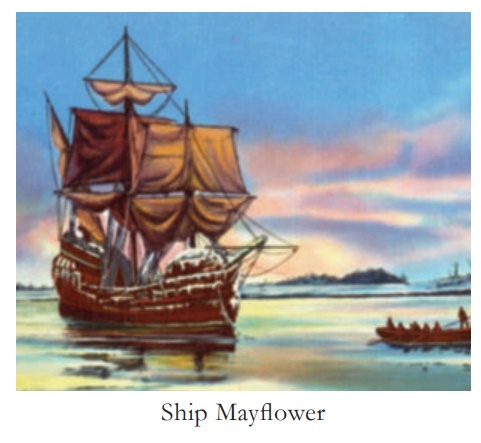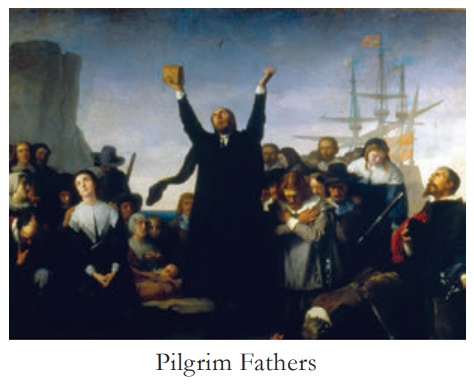American War of Independence - Colonies of European Powers | 9th Social Science : History: The Age of Revolutions
Chapter: 9th Social Science : History: The Age of Revolutions
Colonies of European Powers
Colonies of European Powers
The Portuguese and the Spanish were the pioneers in geographical
explorations and the founding of colonies. The English lagged far behind in
their colonisation efforts. The English possessed a theoretical claim to the
North American mainland in view of the voyage of John Cabot (1497) off the
coast of Nova Scotia. But they neither had the means nor the desire to back up
that claim during the 16th century. Jamestown was the first British colony in
America (1607). The ship Mayflower had taken a batch of Puritans from
Plymouth, England, to America in 1620. They landed in the north and called the
place New Plymouth. Another Puritan group led by John Winthrop set up the
Massachusetts Bay Colony.


Reformers who led a religious movement to reform the Church of
England dispensing with the teachings and practices of Roman Catholic Church
were known as Puritans. The Stuart kings, James I and Charles I, did not
tolerate their attempts to reform the Church of England. The persecution of
Puritans prompted many to leave England and settle. In the colonies they
founded they organized a Puritan way of life.
Many other groups before the Puritans had reached other parts of
the North American coastline and soon many more followed, till there were
colonies dotted all over the east coast from north Many other groups before the
Puritans had reached other parts of the North American coastline and soon many
more followed, till there were colonies dotted all over the east coast from
north to south. There were catholic colonies, and colonies founded by Cavalier
nobles from England and Quaker colonies (Pennsylvania was named after the
Quaker Penn).
The Dutch founded a town and called it New Amsterdam. The English
later changed the name to New York. There were also Germans, Danes and
Frenchmen. By the end of the eighteenth century, there were thirteen colonies
on the east coast all under British control. The 13 colonies (from north to
south) were: Rhode Island, New Hampshire, Massachusetts, Connecticut, New York,
New Jersey, Pennsylvania, Delaware, Maryland, Virginia, North Carolina, South
Carolina and Georgia. By 1775, the population of the thirteen colonies had
grown steadily reaching nearly 3 million, a third of Britain’s population.
Related Topics